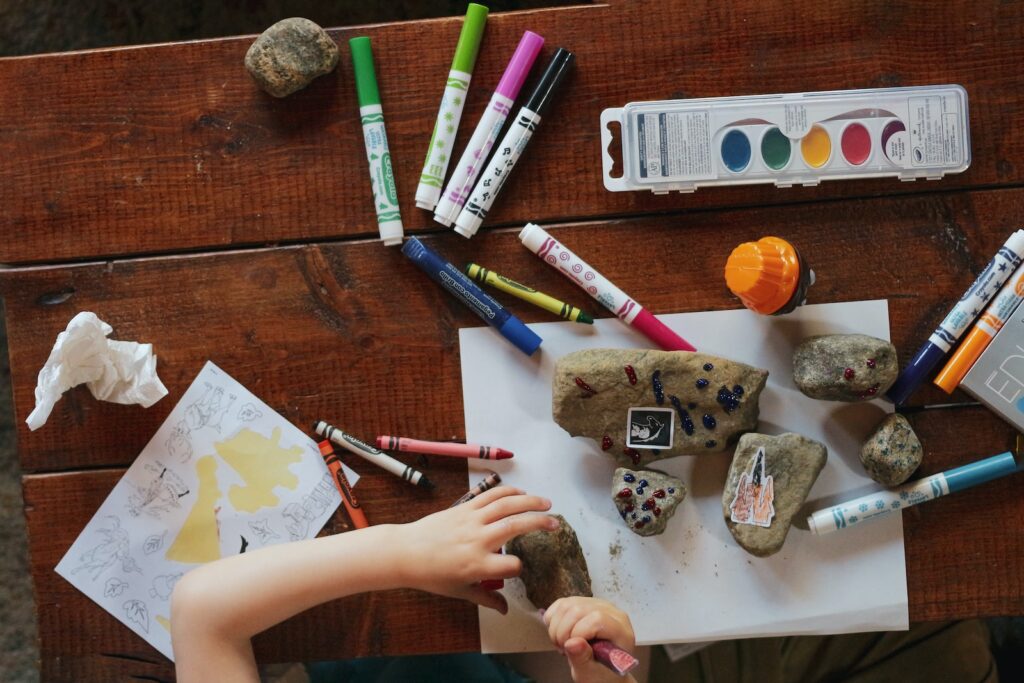
Imagine a world where your child’s mental health is nurtured and protected. A world where they have the tools to navigate life’s challenges with resilience and positivity.
Gratitude journals are a simple yet powerful tool to boost your child’s mental well-being. By encouraging them to write down what they are grateful for each day, these journals foster a sense of appreciation, enhance relationships, and promote self-reflection.
Let’s explore the incredible benefits of gratitude journals for kids.
The Power of Gratitude
Experience the transformative power of gratitude by incorporating daily gratitude journaling into your child’s routine.
Gratitude is a powerful emotion that has the ability to positively impact your child’s mental health. When children practice gratitude regularly, they become more aware of the positive aspects of their lives, which helps them develop a more optimistic outlook.
Gratitude journaling allows children to reflect on the things they’re grateful for, whether it’s a supportive friend, a loving family, or a beautiful sunset. By writing down these moments of gratitude, children are able to cultivate a sense of appreciation and mindfulness.
This practice not only enhances their overall well-being but also fosters resilience and helps them navigate through challenging times.
Enhancing Emotional Well-being
By incorporating daily gratitude journaling into your child’s routine, you can enhance their emotional well-being. Expressing gratitude has been shown to have a positive impact on mental health and emotional well-being.
When your child takes the time to write down things they’re grateful for, it helps shift their focus towards the positive aspects of their lives. This practice cultivates a sense of appreciation and contentment, which can lead to increased happiness and overall emotional well-being.
Gratitude journaling also encourages reflection and self-awareness, allowing your child to recognize and acknowledge their emotions. This process promotes emotional regulation and resilience, enabling them to better cope with stress and adversity.
Fostering Positive Relationships
To foster positive relationships, encourage your child to express gratitude towards others through their journal entries. By doing so, they can cultivate a sense of appreciation and strengthen their connections with family, friends, and even strangers.
Here are three ways expressing gratitude can foster positive relationships:
- Deepening bonds: When your child acknowledges the kindness and support they receive from others, it creates a deeper bond between them. Expressing gratitude can make the other person feel valued and appreciated, strengthening the relationship.
- Promoting empathy: Gratitude encourages your child to consider the perspectives and feelings of others. By expressing gratitude, they develop empathy and understanding towards the people they’re grateful for, fostering positive relationships built on compassion.
- Spreading positivity: Gratitude has a ripple effect. When your child expresses gratitude, it can inspire others to do the same. This creates a positive atmosphere and contributes to building a community of support and kindness.
Encouraging your child to express gratitude in their journal entries can have a profound impact on their relationships, promoting happiness and well-being.
Building Resilience and Self-esteem
Building resilience and self-esteem can be fostered through gratitude journaling. This practice helps children develop a positive mindset and a stronger sense of self-worth. By reflecting on things they’re grateful for, children are able to cultivate a more resilient outlook on life. They learn to focus on the positive aspects of their experiences, even in challenging situations.
Additionally, gratitude journaling allows children to recognize their own strengths and accomplishments. This recognition boosts their self-esteem. When children regularly document their gratitude, they begin to internalize a belief in their own abilities and worth. This increased sense of self-worth provides them with the confidence and resilience needed to navigate through difficult times and bounce back from setbacks.
Promoting Mindfulness and Self-reflection
Gratitude journaling can also promote mindfulness and self-reflection in children, allowing them to develop a greater awareness of their thoughts and emotions. By encouraging kids to pause and reflect on what they’re grateful for, a gratitude journal can help them cultivate a sense of mindfulness, staying present in the moment and appreciating the positive aspects of their lives.
This practice of self-reflection can also enhance their emotional intelligence, as they learn to identify and express their feelings in a safe and non-judgmental space. Furthermore, keeping a gratitude journal can foster a sense of perspective, helping children recognize the good even in challenging times.
It can serve as a reminder of the things that truly matter and bring them joy, ultimately contributing to their overall mental well-being.
In a nutshell …
Boosting kids’ mental health with gratitude journals can have a profound impact on their overall well-being. By cultivating a sense of appreciation and gratitude, children can experience enhanced emotional well-being, build positive relationships, and develop resilience and self-esteem.
Additionally, practicing mindfulness and self-reflection through gratitude journals can help children navigate their emotions and thoughts more effectively.
A gratitude journal can be as simple as a blank notebook, or a journal with prompts and space for drawing such as Ooh Lovely’s “My Very Own Gratitude Journal For Kids“.
So, why wait? Start this transformative journey with your child today and witness the incredible power of gratitude unfold before your eyes!
